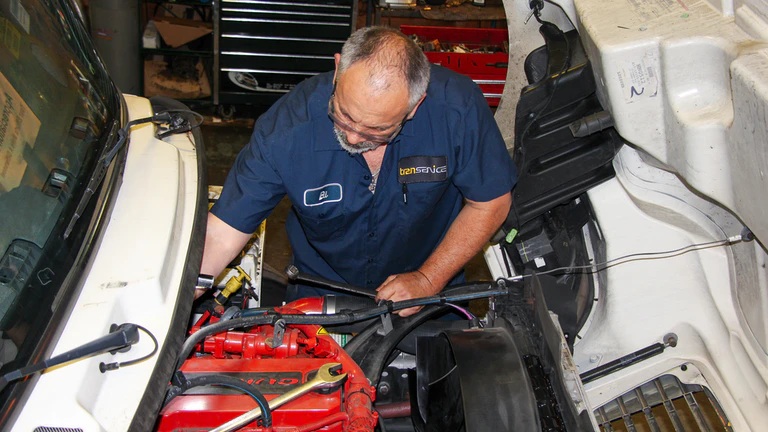With 42% of technicians leaving the industry within the first two years on the job, it’s important to develop successful recruitment and retention strategies that will combat the inevitable lack of maintenance professionals.
Over the last several years, there has been a lot of coverage in the media—both the trucking media and the general media—about the truck driver shortage. The COVID-19 pandemic even gave us some short-term relief, but the lack of qualified drivers is once again in the news.
However, drivers are not the only place where the industry is seeing a shortage of qualified people. We are also in need of more qualified technicians. A significant number of technicians are of retirement age and not enough young people are entering tech schools to get the basic mechanical skills and expertise to begin as an entry level tech. The equipment today is significantly more complicated, requiring a more complete skill set. Often, when we do bring in young technicians, we aren’t able to keep them for the duration. According to a National Institute for Automotive Service Excellence (ASE) survey, 42% of technicians leave trucking with in the first two years on the job.
I am not sure I have an answer to the problem other than for all of us to get involved in our local school districts to begin showcasing the benefits of becoming a truck technician to young people well before they get to high school. I think the pandemic presented us with an opportunity because the trucking industry was shown in a good light as truckers worked around the clock to see that shelves stayed stocked with the goods we wanted and needed, and that healthcare and other essential workers had the PPE supplies they needed. Now that more people have had their eyes open to the importance of trucking, maybe parents will be more willing to encourage their children to pursue careers in trucking—especially as technicians.
The other thing we need to be talking about is all the technology that is on today’s heavy-duty vehicles and the technology that is needed to diagnose and repair these vehicles. Trucking has become pretty high-tech in recent years, and we need to let young people know this. When the first thing you do when a unit comes into the shop is plug it into a laptop, this has all the attributes of an advanced “computer game,” something the younger generation has grown up on.
I recently saw an announcement from ASE designating June Automotive Service Professionals Month. I think it’s safe to assume that this includes truck technicians as well. And if that was not ASE’s intent, I think it’s okay for the trucking industry to jump in and use June to recognize and honor the work truck technicians do.
At Transervice, we have a long tradition of honoring our techs; We do it in conjunction with National Truck Driver Appreciation Week. But the reality is we need to take more than a week or month out of a year to make sure our technicians—and the other professionals in our organizations—know how critical they are to our success. We continue to support their education through ASE accomplishment incentives, OEM training courses, etc.
When it comes to keeping goods moving and trucks on the road it really does take a village that includes drivers, technicians, dispatchers, and a host of other folks. Let’s try to make sure our employees know they are appreciated. It’s good for them and us. Employees who feel valued by the organizations for which they work are more loyal, motivated to do their best and are your best recruiting tool—no one knows more good technicians than a good technician—and sales tool.
Joseph Evangelist joined Transervice in 2007 and currently serves as executive vice president of sales, operations and staff responsibilities. Heavily involved in new business development and account management, his day-to-day focus consists of post-acquisition assimilation planning to maximize new growth and business combination opportunities.
Source: https://www.fleetowner.com/
CUT COTS OF THE FLEET WITH OUR AUDIT PROGRAM
The audit is a key tool to know the overall status and provide the analysis, the assessment, the advice, the suggestions and the actions to take in order to cut costs and increase the efficiency and efficacy of the fleet. We propose the following fleet management audit.




